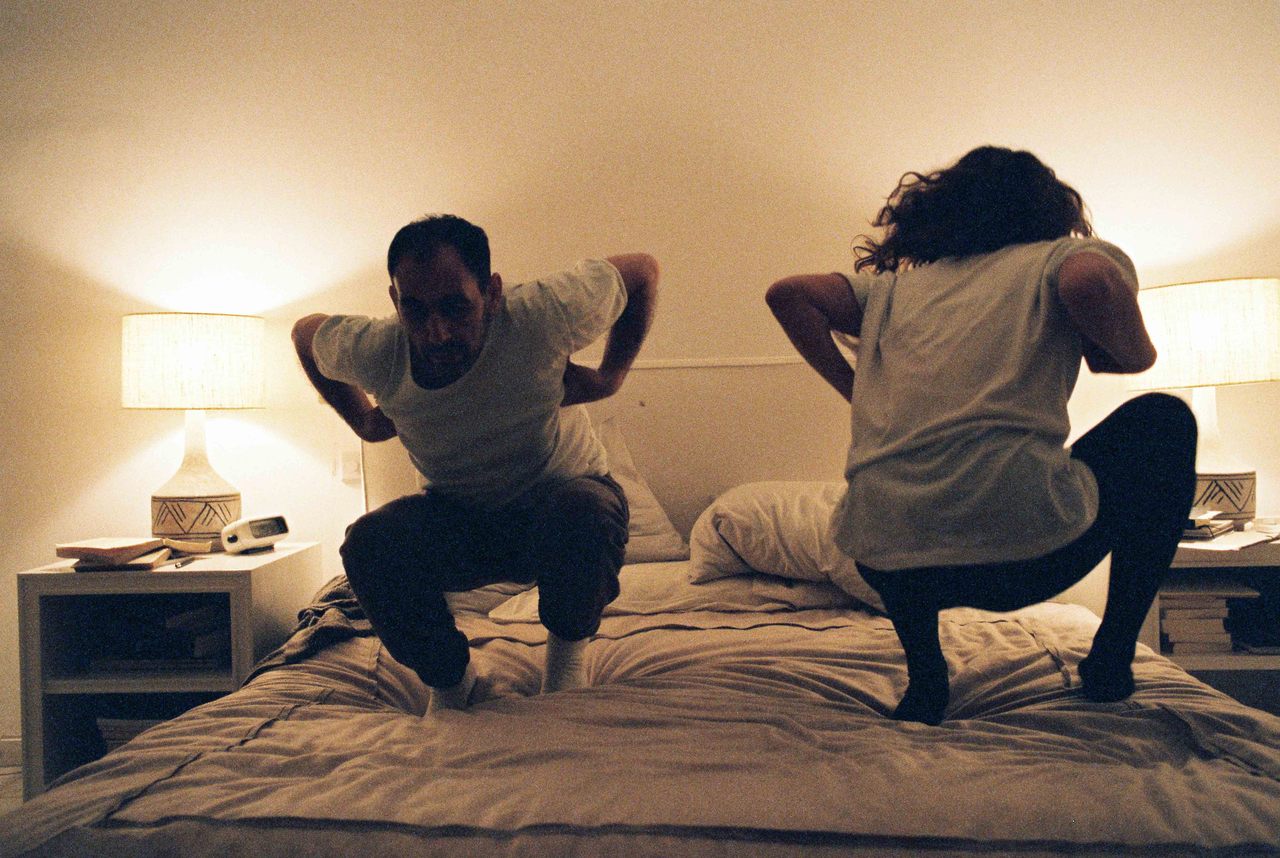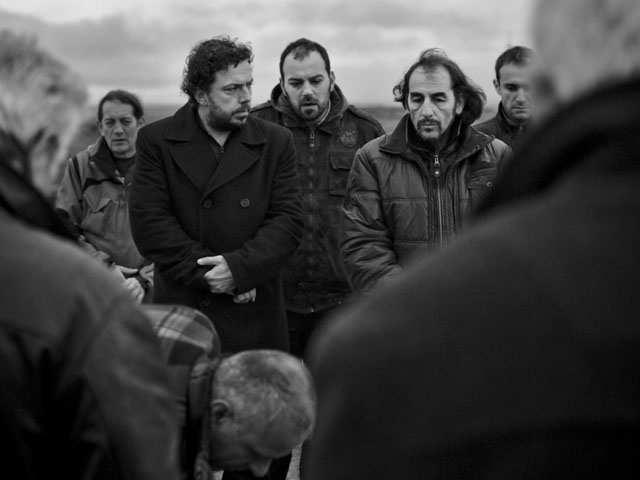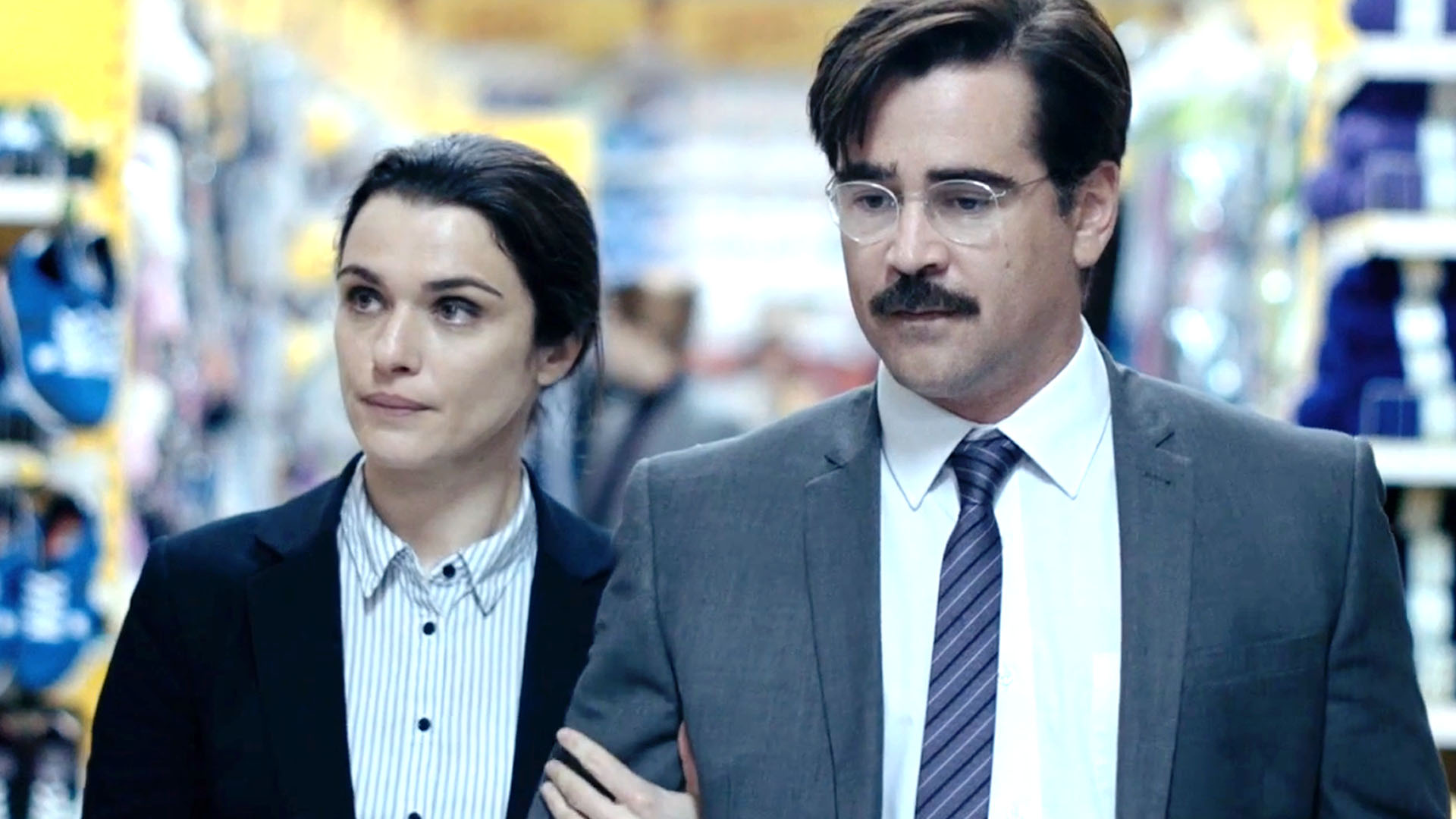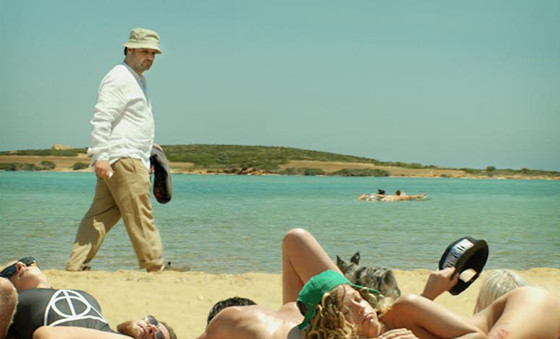5. Attenberg (Athina Rachel Tsangari, 2010)

The name of the movie derives from none other than Sir David Attenborough who’s documentaries are not only at the heart of the movie but the movie at some instances seems to be a part of his repertoire too, as it isn’t short of literal animalistic behaviours as the protagonist Marina (Ariane Labed) takes it as a common time passing to mimic a gorilla or a feral cat, further implementing her detachment from reality.
Although this would be a concerning behaviour, she is frequently accompanied with it by either her best friend Bella (Evangelia Randou) or her father (Vangelis Mourikis) who is slowly dying of an unknown disease, which could in all possibility simply be the pessimism towards the modernity of the 21st century Greece, with a non-direct reference to the crumbling of the society in crisis.
While spending the last days with her father, Marina experiences at twenty-three, a slightly belated ‘coming-of-age’ as she leaves behind her previously felt disgust for sex as she, still with an air of immaturity and awkwardness, gets educated in the matter first by the outgoing and experienced Bella and later by her first male attraction (played by Dogtooth director Yorgos Lanthimos).
All of this takes place as Marina’s reality of being left without a father slowly sinks in as she is forced to find a way to cremate his body for his fear of bugs.
Attenberg is a beautifully absurd piece that is a bricolage of different fictions and genres, as well as a critique on the conflict between Greece and the contemporary industrial evolution.
4. Knifer (Yannis Economides, 2010)

As seen two many times before, a death can change one’s whole life. Economides’ black and white chilling drama deals with the life of Nikos (Stathis Stamoulakatos), who’s father’s death takes him on an unexpected route. Being in a desperate and difficult position, he takes on a job offered by his uncle (Vangelis Mourikis) which consists of acting as a guardian to his pure-bred dogs in return for shelter and means of living in a small area of Greece.
The loneliness of the suburbs slowly begins to fill up in Nikos’ veins, up until the appearance of his uncle’s wife (Maria Kallimani) who becomes the oxygen he so desperately needed. As the movie progresses, so does their relationship as they become closer and closer – perhaps far too dangerously close considering the familial relation.
In “Knifer” it seems like the ever-present economic frustration and general depression and anger becomes a character of the film itself, embodied in the dark silences and black and white colours.
3. The Lobster (Yorgos Lanthimos, 2015)

In his first, but not last, English debut, Lanthimos uses his renown dark humour to criticise the social view of glorifying relationships and demeaning single individuals and the enforcement of the idea that everyone is made to be with someone.
In “The Lobster”, his dystopian society criminalises being single by turning those that have not found a partner within 45 days into an animal of their choice. The plot follows recently divorced David (Colin Farrell) who has been thrust into the dark vault of ‘single’ life. In order to raise his chances of surviving as a human, after answering a set of intimate questions, David enrols into an institution where he can (hopefully) find a mate with whom they have something in common.
Unfortunately, as hard as David tries – and it is in fact difficult to not try hard enough to find a partner in such life-threatening conditions – and despite the various demonstrations of how dangerous being single can be, David can not find someone to pair up with.
And so, voilà, in attempt to save his life, he joins the various ex-humans and the “Loners” gang in the forest, fronted by the Loner Leader (Lea Seydoux). But of course, in order to offer such luxurious freedom to those going against societal norms, a harsh price is paid through the many established and most violent rules .
Ironically enough, it is here that David meets his soulmate, the Short Sighted Woman, whose disability perfectly complements his own. Now the two lovers become outcasts of both societies and, going to all extremes, try to find a way to stay together despite the many harsh obstacles that come in their way.
2. Suntan (Argyris Papadimitropoulos, 2016)

“A coming-of-middle-age-film”, as the tagline describes the movie, and indeed Papadimitropoulos sets a bright contrast between the young and old-er, emphasising the shortness of youth.
Dr.Kostis (Makis Papadimitriou) is the protagonist of the story as he arrives on a small Greek island to serve as their new doctor. At 42 years old he is not quite the success he wanted to be, especially in comparison to his med-school friends; he is single, unmarried, doesn’t have an impressive job and his life in general is quite a bore.
All of this, however, changes as summer breathes over Antiparos island, bringing with it a youthful scent embodied by the hundreds of young, naked tourists there to enjoy the beautiful beaches.
One of such beauties is Anna (Elli Tringou), who along with her four friends ends up at Kostis’ office after a leg injury. Their attitude seems to be everything Kostis never had, and despite them making a clear disturbance, he responds with nothing but friendliness. Overwhelmed by their energy and beauty, particularly Anna’s, he decides to take a stroll to the beach in hopes of running into his new acquaintances.
As they begin to see each other more and more, going out to the naked beaches and exploring the night life of the island, Kostis becomes so drawn to the idea of youth and freedom, particularly in terms of sexuality, that he becomes oblivious to the fact that his time had run out long ago and that trying to fit into their circle is like putting on a time-bomb that will explode at any point.
This becomes too evident as Kostis falls in love with Anna and she becomes the token of his obsession causing him to embarrassingly trail through the tragic path of his much belated passion and desire as he desperately tries to act younger than what his drooping flesh prescribes.
1. Dogtooth (Yorgos Lanthimos)

In Dogtooth, Giorgos Lanthimos takes home education to a disturbingly new level in his somewhat absurdist comedy, filtered with the darkest black. The brilliant yet somewhat emotionless acting, which as witnessed from his other movies is one of his outstanding features, is a perfect addition to the scarily dysfunctional world he creates for the family at the centre of Dogtooth.
As the proverb goes, every family has a skeleton in the cupboard, however the skeleton of this family turns out to be a lot larger than one would expect, as each episode of the movie uncovers yet another troubling event. The over-protective father (Christos Stergioglou) defends his children (Aggeliki Papoulia, Mary Tsoni and Christos Passalis) – who are in fact already young adults – from the outside world by creating them a world of their own that doesn’t extend beyond the hedges around their garden.
By restricting their contact with technology that could be their only true source of information to home movies and limiting their human contact to the family and a security guard who occasionally comes over to satisfy the son’s sexual needs, he takes full control over his children’s knowledge to the extent of manipulating their vocabulary as we hear from the opening recording describing the word “sea” as something much too close to an armchair.
Innocently and unknowingly, the three siblings are living through this nightmare eagerly waiting for their dog-teeth to fall out, as that will mean that they are old enough and ready to leave this augmented reality they have been living.
Full of lurid violence and foiled sexuality, Dogtooth unfolds as a 1984-like piece, restricted to a single house for a city and single family for society, ruled over by a derisory dictator who creates a perturbing parallel universe within four walls.
Author Bio: Polina is an aesthete and cinephile, devoted to using the arts to revive “sex, drugs and rock’n’roll” in hopes of loosening up the world by defying the unnecessary social restrictions. When taking time off her edgy crusade she can be found soaking in a bubble bath with a Dostoevsky novel.